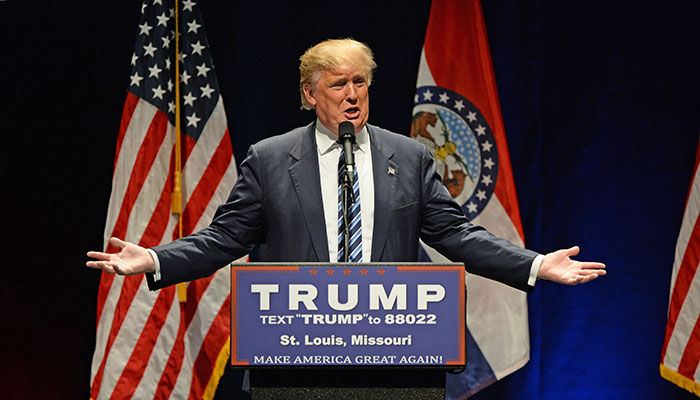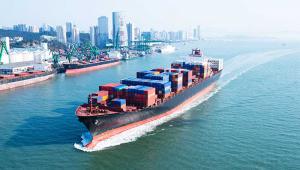web_donaldtrump_shutterstock_389315497.jpg

The policies of US president Donald Trump will have an impact on the global economy, the IMF said, but it remains unclear whether this will be good or bad.
However, risks and uncertainty, emanating from the US in particular, increasingly threaten this upbeat outlook.
Launching its latest update on the global economy, the world’s foremost financial institution said that incoming US president Donald Trump is likely to have an impact on global growth, but it was unsure whether this would be positive or negative.
The fund left its October forecasts for 2017 and 2018 unchanged, at 3.4% and 3.6% respectively, up from 3.1% last year.
IMF chief economist Maurice Obstfeld said that after a series of downgraded predictions in 2016, the fund’s expectations now look “increasingly likely to be realised” and will be driven by more countries than previously thought.
“An accumulation of recent data suggests that the global economic landscape started to shift in the second half of 2016,” Obstfeld said. “Developments since last summer indicate somewhat greater growth momentum coming into the new year in a number of important economies.
“Compared to our view in October, we now think that more of the lift will come from better prospects in the US, China, Europe and Japan.”
The most significant of these is the US, where analysts expect a substantial fiscal expansion in line with incoming president Trump’s campaign promises.
The fact that both houses of Congress and the White House are in the hands of the same party for the first time in six years could also lead to lower tax rates and possibly higher infrastructure and defence spending, Obstfeld added.
This has garnered optimism in the financial markets, and also, seemingly, the fund, which has upgraded its projections for US growth this year and next to 2.3% and 2.5% – increases of 0.1 percentage points and 0.4 percentage points respectively.
However, Obstfeld also noted that risks are concentrated in the short term and “uncertainty has risen”.
“At this early stage, the specifics of future fiscal legislation remain unclear, as do the degree of net increase in government spending and the resulting impact on aggregate demand, potential output, the federal deficit and the dollar.”
If, for example, fiscal demand hits a lack of capacity, the US Federal Reserve will be forced to increase interest rates at a faster pace in order to contain inflation.
This would cause a sharp appreciation of the dollar, lower growth, budget pressures and a wider current account deficit in the US. Meanwhile, elsewhere it would become more expensive to borrow money and countries with US dollar-denominated debts might struggle to pay.
“That last scenario, one with a widening of global imbalances, intensifies the risk of protectionist measures and retaliatory responses,” added Obstfeld. “The details of the US policy mix matter; as these become clearer, we will adjust our forecast and spillovers.”
For now, the fund remains upbeat despite the potential for more hostile trading relationships because it expects countries will realise protectionism is not in their own self interest, he stated.
Much like the US, the other countries that the fund believes could drive an uptick in global growth also face risks of their own. In China, another nation underpinning the fund’s forecast, a credit boom, high corporate debt and continued government support for inefficient state-owned enterprises threaten the outlook.
In Europe, the terms of the UK’s exit from the European Union “remain unsettled” and a series of national elections could have consequences for the economy. A backlash against trade, immigration and international cooperation in a number of countries, widespread levels of public and private debt and climate change all also pose threats globally.
Social dislocation as a result of globalisation and, increasingly, technological change, will “only intensify into the future”, Obstfeld added.
He warned governments against turning inwards: “[This] would impose aggregate economic costs without reducing the need for government investment in well-trained, nimble workforces, along with policies to promote better matching of available jobs to skills.
“We do well to acknowledge a key takeaway from 2016: sustainable growth must be inclusive growth.”












